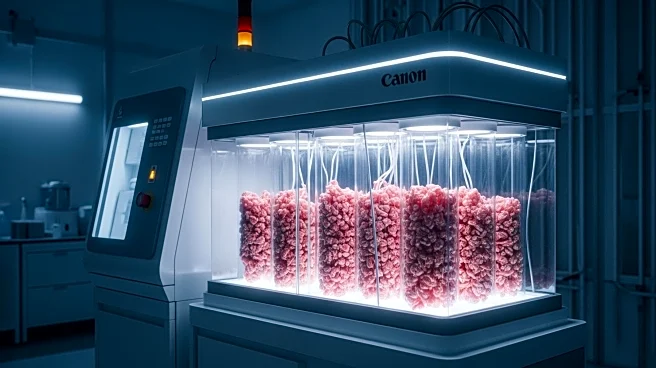What's Happening?
Aleph Farms, a cultivated-meat company founded in 2017, is preparing to commercially launch its first product, Petit Steak, as it aims for profitability by the end of 2028. The company has established a pilot manufacturing facility in Israel and is expanding its operations to Switzerland and the UK. Aleph Farms has signed an agreement with The Cultured Hub to set up its first European production base in Zurich. CEO Didier Toubia outlined plans to scale up production and launch the product within six months, focusing initially on Israel and Singapore, followed by Europe and Asia.
Why It's Important?
Aleph Farms' strategy to achieve profitability by 2028 reflects the growing interest and investment in alternative protein sources. Cultivated meat offers a sustainable solution to meet global protein demands while addressing environmental concerns associated with traditional meat production. The company's expansion into Europe and Asia signifies its ambition to capture a significant share of the global market. Success in these regions could lead to increased consumer acceptance and regulatory approvals, potentially transforming the food industry and reducing reliance on conventional meat.
What's Next?
Aleph Farms plans to start production in Switzerland by the end of 2026, with regulatory approvals pending in several countries. The company aims to launch its Petit Steak product in restaurants and foodservice outlets initially, with retail distribution to follow. As Aleph Farms continues to optimize its production process and reduce costs, it will likely seek additional investment to support its expansion efforts. The company's progress will be closely watched by industry stakeholders and investors, as it represents a significant step towards mainstream acceptance of cultivated meat.
Beyond the Headlines
The cultivated meat industry faces challenges such as regulatory hurdles and consumer skepticism. Aleph Farms' focus on high-quality products with fewer ingredients may help overcome these barriers and position the company as a leader in the alternative protein market. The company's asset-light strategy, leveraging third-party collaborations, could serve as a model for other businesses seeking to enter the cultivated meat space.









